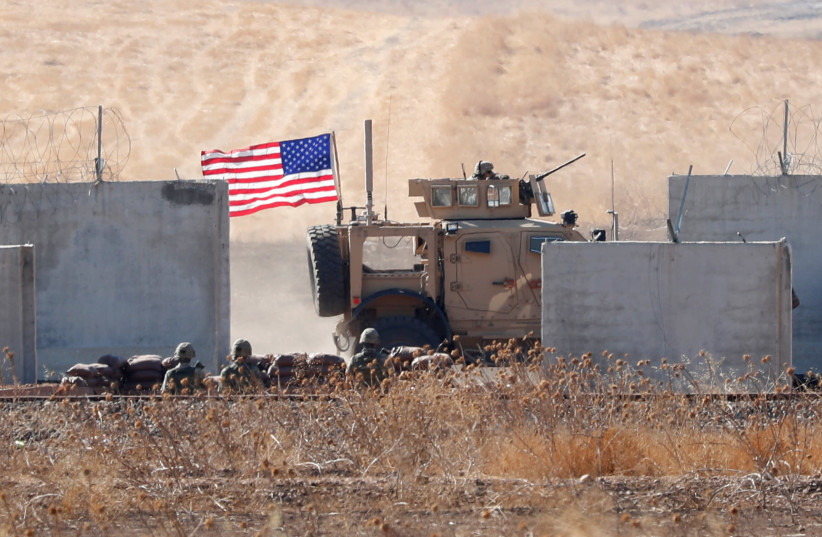New poll on eve of US election shows Arab support for MidEast peace and US involvement but argues that previous US presidents have left the region worse off.
SETH J. FRANTZMAN
OCTOBER 27, 2020 12:04

A new poll published by Arab News and conducted with YouGov showed that while people in 18 countries surveyed may be concerned about US President Donald Trump’s policies, they are supportive of US engagement with the region and solving the Israel-Palestinian conflict. Of particular importance, when asked about what the largest problems are in the region, many referenced economic problems or even Iran, but not Israel as a negative issue.
The survey was conducted prior to the US presidential election and found that 52 percent of respondents said they were against the US playing a bigger role in mediating between Israel and the Palestinians. Of particular interest, when asked about threats facing the Arab world, 66% cited failed governments and 43% economic problems, while 20% saw Iran as a major threat, and 33% saw “Islamic terrorism” as a threat. Climate change was not seen as a major problem, while 18% cited lack of clean water. In short, people believe you need clean water before you can worry about climate change.
The region is noncommittal on which American candidate is better. Almost half, 49% said neither while 40% preferred Democratic candidate Joe Biden. Similarly there is remarkable consistency across the Arab world, from north Africa to the Gulf on perceptions of the candidates. Half of those surveyed believe the US has a major impact on the region. Around sixty percent think that a Biden presidency should not continue the Obama administration’s policies, which around 60% felt had left the region worse off. This seemingly contradictory answer indicates that while many are concerned about Trump remaining president, they want a Biden presidency to not continue the legacy of the 2008-2016 era, when the Arab spring and instability erupted. 44% want the US to help solve the Israel-Palestinian conflict while 24% want Hezbollah and Iran contained.
Almost sixty percent believed the US had helped in the fight against extremism in the region. Many of those surveyed believed the US currently faces internal challenges from racism and a global challenge from China, meaning that Arab countries could see a need to balance their foreign policy with other global powers as the US draws down forces in the Middle East.
Given the complex track record of US involvement in Israel-Palestinian peacemaking, from the Oslo process to Camp David and Annapolis, as well as the Trump administration’s move of the embassy to Jerusalem, the survey showed surprising levels of continued support for the US to play a role in the peace process. This seems to dovetail with overall levels of support for the US elimination of Iran’s IRGC Quds Force commander Qasem Soleimani in January. A total of 71% of respondents from Syria felt it made the region safer, while 59% of Lebanese agreed as well. Overall a slight majority thought it made the region safer.
Large numbers of people appear to support tough sanctions on Iran, including 53% of those in Iraq, half of those in Saudi Arabia and double digit percents in Yemen, Lebanon and Syria. While many feel the US leaving the Iran deal made the region less safe, it seems about half of those in the region think it had little impact. This shows a major split in most countries on how the US should handle Iran, often with large numbers thinking a tough stance is preferable.
Content retrieved from: https://www.jpost.com/middle-east/arab-survey-us-can-help-solve-israel-pal-conflict-contain-iran-647079?fbclid=IwAR3CYzAxqHMBolTAzc8BR8-y-cu0G6mhVfcG31lFYf8QTQ_vVEQMCGDAD4M.